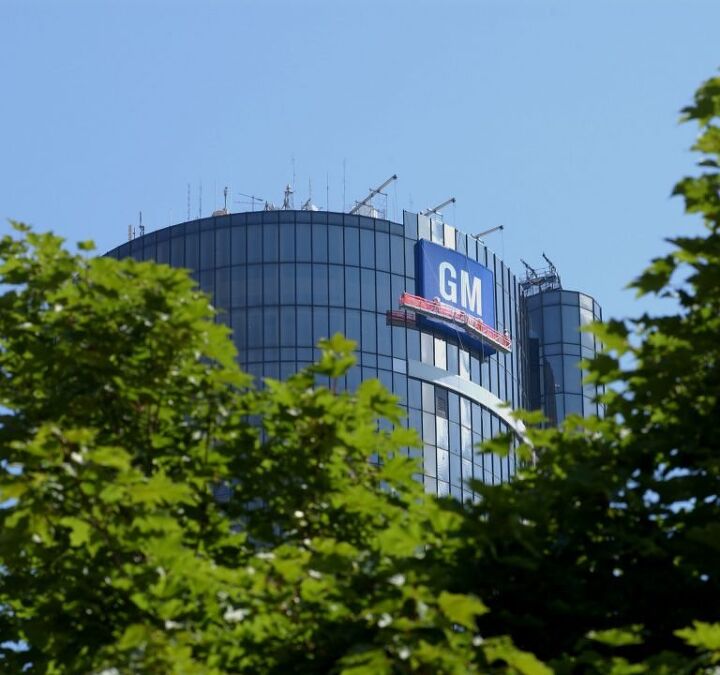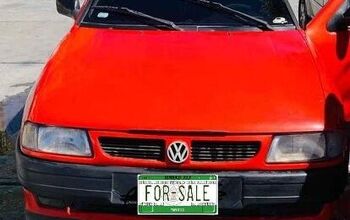GM: Current Fuel Economy Rules 'Not Technologically Feasible'

General Motors appeared to endorse the Trump administration’s fuel economy rollback, at least to some degree. In a federal filing made public on Monday, the largest U.S. automaker said Obama-era rules that targeted fleetwide fuel efficiency in excess of 50 miles per gallon by 2025 were “not technologically feasible or economically practicable.”
Interesting, considering GM CEO Mary Barra recently called for for the adoption of a national zero-emission vehicle strategy. However, the document also had GM saying it was “troubled” that the current administration appears so keen to abandon federal incentives on electric vehicles after the 2021 model year.
According to Reuters, America’s largest automaker has been lobbying Congress to lift the existing cap on electric vehicles that are eligible for a $7,500 tax credit, which gradually fizzles out over a 12-month period after an individual automaker sells 200,000 electric or plug-in hybrid vehicles. General Motors also requested that the federal government establish a national building code that would require all new residential construction to support EV charging, and wants the government to increase spending on research and development in battery cell technologies.
If the government is taking requests like these, there’s an automotive writer working for this outlet that would love to get his hands on a brand new Dodge Challenger R/T Scat Pack for long-term review purposes and a year of free gas. Consider it a stimulus package.
It’s difficult to tell whose side automakers are on, but we can help. They are on their own side. It makes sense for GM to back California’s zero-emission mandate, especially if it intends to build more EVs while looking green in the process. However, most automakers badgered President Trump to roll back fuel mandates during his first week in office and General Motors was no exception.
That position was echoed in its comments filed to the Safer Affordable Fuel-Efficient (SAFE) Vehicles Rule for Model Years 2021-2026 for Passenger Cars and Light Trucks. GM said that since 1980, vehicle fleets have improved its fuel efficiency at an average rate of 1 percent a year. While it did not specify whether that should remain the government-approved target, the Obama-era goals are substantially more aggressive.
[Image: General Motors]

A staunch consumer advocate tracking industry trends and regulation. Before joining TTAC, Matt spent a decade working for marketing and research firms based in NYC. Clients included several of the world’s largest automakers, global tire brands, and aftermarket part suppliers. Dissatisfied with the corporate world and resentful of having to wear suits everyday, he pivoted to writing about cars. Since then, that man has become an ardent supporter of the right-to-repair movement, been interviewed on the auto industry by national radio broadcasts, driven more rental cars than anyone ever should, participated in amateur rallying events, and received the requisite minimum training as sanctioned by the SCCA. Handy with a wrench, Matt grew up surrounded by Detroit auto workers and managed to get a pizza delivery job before he was legally eligible. He later found himself driving box trucks through Manhattan, guaranteeing future sympathy for actual truckers. He continues to conduct research pertaining to the automotive sector as an independent contractor and has since moved back to his native Michigan, closer to where the cars are born. A contrarian, Matt claims to prefer understeer — stating that front and all-wheel drive vehicles cater best to his driving style.
More by Matt Posky
Latest Car Reviews
Read moreLatest Product Reviews
Read moreRecent Comments
- Yuda Very dystopian. Not good.
- EBFlex Yes. They don’t work.
- THX1136 I remember watching the 'Wonderful World of Disney' back when I was kid. One program imagined the future. In that future one could get in their car, tell it the chosen destination and the car would take you there without any further intervention. As a pre-teen I thought that sounded pretty cool. Now I'd be more on the side of wanting to drive when I want and letting the car do the driving when I don't. Not scared of autonomous vehicles, not ready to completely abandon driving myself either.
- Dave M. Always thought these were a great design, timeless in fact. But as a former Volvo owner who was bled to death by constant repairs starting around 40k miles, run far far away
- MrIcky no


































Comments
Join the conversation
We gotta stop pretending that it is still the 1970s. We no longer live in that world of perceived oil scarcity and air pollution from primitive engines. Current gas engines are orders of magnitude cleaner. Oil is no longer perceived to be scarce. The only reason Toyota cranked out Prius cars is because that was the cheapest way to meet the government regulations for clean cars. All this talk of EVs, hybrids, hydrogen, fuel cells, it is all just a way for major companies to lose the least amount of money while making the government happy. There is a major market distortion due to the mindset of still living in the 70s. Global warming is still the biggest swindle. CO2 level was as high as 4000 ppm half a billion years ago, as low as 180 ppm, and now we are bickering about whether we can keep it at 300 or 400 ppm, trivial. Earth survived just fine. Let's live in the 2010s and 2020s. The problem is not the pollution or oil scarcity. The problem is the horrendous traffic in any place where people want to live. We are born with limited number of waking hours. Make them count. Stop wasting human hours on dead end environmental projects. When we learn to count human hours as a precious, limited commodity, we will be able to make some rational decisions. The problem is that right now, the invisible hand of the market is the only calculation that takes into account human hours. And people hate the market because it is not fashionable.
I don't think we have an endless supply of oil. In my opinion, we are one mis-step (Iran or Saudi Arabia or something else) from disruption which would demonstrate that oil is not abundant. As far as global warming, I personally think both sides exaggerate. The world has been colder and warmer, long before the industrial revolution; at the same time, one cannot say that all the coal and oil burned, all the forests cleared in the last 150 years really 'haven't made a difference'. As for seventies safety standards, OK, perhaps that is too lax. But air bags and crashworthiness add cost and mass. How many people can afford a new car now? People need cars to survive. I'm simply advocating making driving more expensive for everyone by raising fuel prices, which will reduce miles driven, and at the same time, cushioning the blow by making cars more fuel-efficient and economical. Less cars driving fewer miles will mean less congestion and less wasted time. And wasted time is a fair form of taxation--a CEO or board member stuck in traffic in their Benz loses their grossly overpriced time, just like the Wal-Mart greeter who lost their old factory job. Their time is valued differently, so their lost time is worth different amounts. For all the excitement of the internet, wireless, computers, the fact is that today, collectively, the USA and its inhabitants are more dependent on cars than they were in 1973, when our Saudi "friends" turned off the tap, and when our Iranian "friend", the Shah, quadrupled the price. In 1973, Americans, grudgingly perhaps, were coming together as our role in the divisive (and misbegotten) Vietnam war was winding down, and as the more Americans were coming to terms with the wrongs of racial prejudice. Today we are going in the opposite direction. When the cheap oil ends, we will have bigger troubles than we did in the mid-70s. I like cars a lot--only my finances and lack of real estate limit my ambitions to own more of them, but in my lifetime the sprawl AND growth in size of cars has grown out of control! THe other afternoon I saw a mid-80s Mercedes 300D Turbodiesel--and it looked small next a Chevy Cruze, let alone all crossovers!! It's outta control.... I'm done now :)